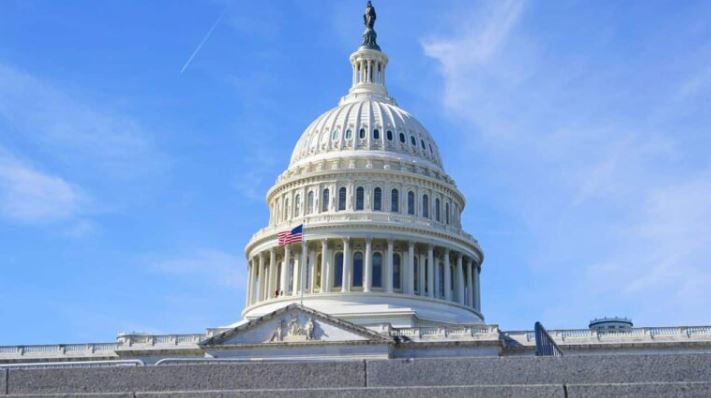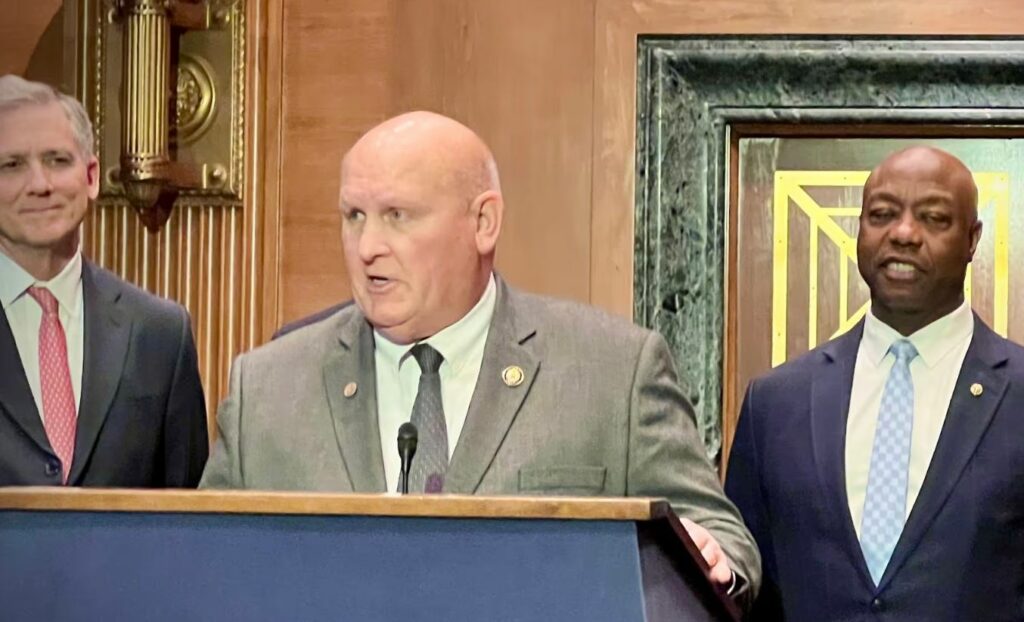
In a pivotal week for U.S. crypto regulation, lawmakers in both the House and Senate made major strides toward passing two landmark bills that could reshape the digital asset landscape. The Digital Asset Market Clarity Act, a sweeping framework for crypto market structure, and the GENIUS Act, aimed at stablecoin regulation, are both moving forward after key committee votes and procedural advances.
This coordinated progress signals a new phase for crypto oversight in the United States as regulators and legislators work to close gaps between the Commodity Futures Trading Commission (CFTC) and the Securities and Exchange Commission (SEC), while also laying the groundwork for safe and regulated stablecoin issuance.

Dual Committee Support Propels the Clarity Act Forward
On Tuesday, June 4, two U.S. House committees, the House Agriculture Committee and the House Financial Services Committee, held markup hearings to finalize and vote on the Digital Asset Market Clarity Act, also referred to simply as the Clarity Act.
- The House Agriculture Committee passed the bill with overwhelming bipartisan support, voting 47-6.
- The House Financial Services Committee also approved the measure in a separate hearing, with a 32-19 vote.
Both committees share jurisdiction over different parts of the crypto market: Agriculture oversees commodities and the CFTC, while Financial Services is responsible for securities and the SEC. For the Clarity Act to move to the House floor, both committees needed to approve it.
This dual approval marks a major milestone for the legislation, which aims to define regulatory responsibilities between the SEC and CFTC, clarify how digital assets are classified, and introduce new investor protections.
What the Clarity Act Proposes
The Clarity Act has been in the works for months and went through several revisions leading up to this week’s votes. At its core, the bill does the following:
- Clarifies agency roles by giving the CFTC authority over digital commodities, which make up the bulk of crypto assets.
- Provides a framework for consumer protections, especially for retail crypto users.
- Attempts to close regulatory loopholes that have allowed some crypto firms to operate in legal gray areas.
House Agriculture Committee Chairman Glenn “GT” Thompson opened Tuesday’s hearing by emphasizing that the bill would bring much-needed legal certainty and accountability to digital asset markets. He highlighted its role in supporting innovation and filling the gaps between the SEC and CFTC.
However, not all lawmakers were on board. Rep. Angie Craig, a Democrat on the Agriculture Committee, acknowledged that while the bill isn’t perfect, failing to act would leave millions of American crypto users without adequate protections.

Political Tensions and Trump-Related Amendments
The House Financial Services Committee hearing revealed deeper political tensions.
Rep. David Scott, a Democrat who sits on both committees, expressed concern that the bill would allow crypto companies to bypass proper oversight and questioned the CFTC’s ability to regulate retail-facing financial products. “This is a gift to the worst actors in this industry,” Scott warned.
Other Democrats pushed back with a flurry of amendments. Some aimed to block former President Donald Trump and other government officials from profiting from crypto ventures. Others tried to ensure regulatory agencies like the SEC and CFTC had the proper staffing before enacting new rules.
All of these amendments failed along party lines, underscoring the partisan divides that still shadow crypto legislation, despite overall bipartisan support for the Clarity Act itself.
In a related effort, Rep. Maxine Waters proposed an amendment to the HUD Transparency Act of 2025, calling for an investigation into whether the Department of Housing and Urban Development (HUD) was considering Trump-backed stablecoins for payments in government-assisted housing. “Trump and his administration are trying to force crypto down the throats of people living in HUD-assisted housing,” Waters alleged.
Senate Races Toward Stablecoin Vote with the GENIUS Act
While the House focused on market structure, the Senate turned its attention to stablecoins—digital tokens pegged to fiat currencies like the U.S. dollar.
The Guiding and Establishing National Innovation for U.S. Stablecoins Act of 2025—commonly called the GENIUS Act—is approaching a final vote, which could happen as early as Wednesday, June 5.
The bill has gained significant bipartisan support and outlines clear standards for:
- Stablecoin issuance
- Reserve backing
- Licensing requirements
On Monday, Senate Majority Leader John Thune made a key procedural move to advance the bill, setting a 2:30 p.m. Tuesday deadline for amendments. Policy analysts, including Jaret Seiberg of TD Cowen, noted that this maneuver could block unrelated amendments, such as those involving credit card regulations, that might delay the vote.
Senator Bill Hagerty, the bill’s sponsor, has stressed that time is tight for its passage this year, given the packed Senate calendar. Industry insiders are watching closely, as the outcome could define how stablecoins are integrated into U.S. finance going forward.
What’s Next: Will the Bills Merge?
If the GENIUS Act passes the Senate, it will move to the House, where a similar stablecoin bill is already pending.
At that point, lawmakers will face strategic decisions:
- Should they bundle the GENIUS Act with the Clarity Act into one comprehensive crypto regulation package?
- Or should the House adopt the Senate’s stablecoin bill as-is?
- Alternatively, will the House insist on reconciling the two versions into a new unified draft?
Each option carries political risk but also opportunity, especially as 2025 shapes up to be a defining year for crypto regulation in the U.S.
Final Thoughts: Regulation Finally Finds Momentum
For years, the U.S. crypto industry has operated in a state of uncertainty, caught between competing regulatory interpretations and outdated financial laws. But this week marks a significant turning point.
With strong bipartisan support in the House and Senate, and both the Clarity Act and GENIUS Act moving toward full chamber votes, the prospect of clear, modern crypto regulation is now more real than ever.
Still, challenges remain—especially political ones. Disagreements over enforcement, consumer protections, and potential conflicts of interest involving top government figures could derail momentum.
But for now, the message from Capitol Hill is clear: U.S. lawmakers are finally getting serious about crypto.























